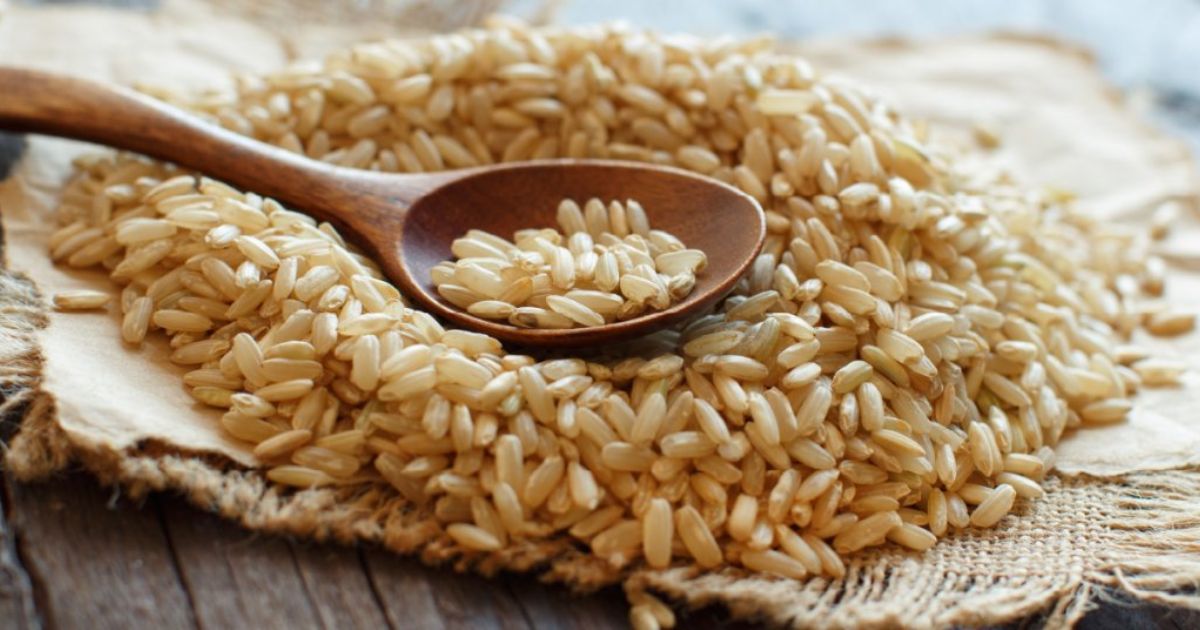People all over the world consume rice to some extent. In countries in Asia, such as India, China, Japan, Korea, Bangladesh, and the Philippines, it is often considered a staple that is consumed with each meal throughout the day. However, at the same time, most of us are aware that we need to tread carefully, as it can lead to food poisoning, especially if consumed in a reheated condition.
But now, there’s a new danger. A new study has revealed that brown rice could pose an increased risk of arsenic exposure, which can then lead to cancer. While it is definitely not good news for anyone who loves their rice, it is important to understand the science behind it to figure out how you can mark yourself safe.
Arsenic is a metalloid that can be found in soil and water. This means that the element can be traced in some food as it grows and absorbs it. In most foods, the levels are usually low and don’t cause any major concern. However, the new study shows that the level of arsenic in rice can be 10 to 20 times more than in any other cereal corps.
The research from Michigan State University further reveals that it is brown rice which has a higher arsenic level than white rice. Over the years, many have swapped their plate of white with brown rice, as it is widely considered a healthier option despite much debate.
The researchers explained, “Brown rice is often considered a healthy alternative to white rice due to the additional nutrients contained within the rice bran. However, the proposition of improved health outcomes by replacing white rice with brown rice in diets ignores a potential food safety concern: arsenic exposure.”
ARSENIC is a Group 1 carcinogen and as water-soluble it accumulates in RICE, which is grown in flooded fields.
Brown rice has more inorganic arsenic than white rice.Children are especially sensitive to lead, arsenic and mercury. 73% of baby foods contain arsenic. Be aware. pic.twitter.com/20gRlgEDbn
— Dr. Avi Dascalu, MD, PhD (@AviDascalu) January 2, 2022
The study, which was published in the journal Risk Analysis, found that Americans who regularly consume brown rice over white have “higher estimated arsenic exposures.”
The author of the study explained, “Brown rice retains much of the grain’s nutrients found within the bran and the germ, including fiber, protein, niacin, and folate, with potential benefits to consumers.”
“However, the bran and germ of brown rice also retain higher concentrations of certain harmful toxic elements such as arsenic, which are taken up from the soil during its cultivation. As a result, brown rice and its products, such as brown rice syrup, have a higher concentration of arsenic compared to white rice food products.”
Now comes the concerning part: the arsenic level in brown rice is now being linked to cancer. “This is of potential concern because arsenic exposure – even at lower levels that do not cause acute toxicity – has been linked to a number of human health risks, including multiple cancers and cardiovascular disease,” the study revealed.
Even the World Health Organization has issued a warning about arsenic being one of the 10 chemicals posing “major public health concern.” On their website, WHO also states that long-term exposure to arsenic from water and food could lead to cancer, diabetes, cardiovascular disease, and skin lesions.
We systemically summarized the efficacy of brown rice on cardiovascular diseases (CVDs), hyperlipidemia, hypertension, diabetes, obesity, osteoporosis, neurodegenerative diseases, cancer, immune disorders, inflammation, anxiety, liver and stomach damage.https://t.co/khL17ySRbk pic.twitter.com/OYKHXLT4fV
— htw (@heniek_htw) March 29, 2023
The study added that the concern mostly affects young children, who “consume considerably more food relative to their body weight than adults.” WHO also warns, “In utero and early childhood exposure has been linked to negative impacts on cognitive development and increased deaths in young adults.”
However, the Michigan State University team firmly states that the arsenic levels in brown rice should not cause any long-term health issues for someone who consumes it in moderation.
“This research is important because it acknowledges the importance of considering food safety along with nutrition when consumers make choices about food,” says Professor Felicia Wu, the lead investigator of the study.
So don’t worry! You don’t need to clear out your pantry just yet!













